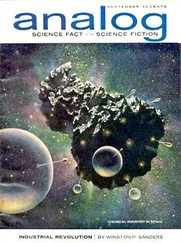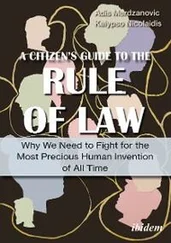Slowly, barricades formed in front of the tanks. One man in a suit carried a briefcase in one hand and a long, thin steel rod in the other to add to the barricade. It was a measured and steady effort. People stood staring at the tanks, waiting for them to move, but they didn’t. As the afternoon wore on more people sauntered in, although for most of the day the crowd behind the barricades around the White House seemed to be less than a thousand people. A few determined troopers could have sacked the place in fifteen minutes. It was a fantastic sight, though — dozens of tanks seemingly held off by a few hundred people.
The rest of the city didn’t seem to be paying attention. Many people were apathetic, as if a coup happened every summer. Life went on as usual. At the Kremlin, where the party still held sway, the limousines came and went. The ceremonial guards stood outside Lenin’s tomb, as they had for the last sixty-seven years. Just another day in the USSR.
That evening at around 5:00, desperate to reignite the stalled revolt, the coupsters made their TV debut at a press conference. Missing was Valentin Pavlov, who was too drunk to show up and stayed in bed where he remained for most of the coup. Holding a press conference is usually wrong for a coup. Properly done, a coup communicates with slashing violence and ruthless efficiency. Cramming vague explanations down the throats of testy journalists is the role of elected officials, not revolutionaries. Taking questions instead of shooting questioners revealed their inherent weakness.
It was obvious to everyone that the coupsters looked anxious, indecisive, and a bit preposterous as they sat around a table, hands shaking nervously, fielding questions from journalists. At one point Starodubtsev, the chief of Union of Collective Farm Chairmen, was asked why he was involved. “I was invited, so I came,” he replied. Needless to say, rambling pap failed to strike fear into anyone.
As night fell over Moscow and a chilly, misty rain coated the city, the mood at the White House lightened. The barricades bulged as demonstrators pushed trolley cars across the avenues. The air crackled with nervous excitement. People knew they were involved in a grand affair whose outcome was unknown. The crowds had grown to thousands of people. Giant tricolor Russian flags flew. It was an outburst of long-suppressed political rebellion. A group of anarchists, dressed in black, wrapped in their flags, slumped against the building, sleeping. On state television that evening, a long report aired about Yeltsin’s tank-top speech and on the growing resistance movement at the White House. A carnival atmosphere floated over the crowd. It was a crazy circus of democracy. As the evening wore on, the fear of a night attack took hold. The Chinese military slaughter of the protesters in Tiananmen Square only a few years earlier lay fresh in people’s minds. Around midnight on side streets, long lines of tanks waited in the darkness, soldiers milling around nervously. If an attack came it would be overwhelming.
The coupsters had given the orders to storm the White House but were refused outright or stalled by the generals, who faced a stark choice. They knew Gorby’s regime no longer reflexively protected the men who did the dirty work. It was no longer possible to kill on command and not suffer blowback. Some were bitter about Afghanistan. The army had followed brutal orders from the politicians for a decade and, in the end, the defeat had ruined the army’s reputation within the country itself.
Some soldiers had told their officers that they would refuse to attack Russians in Russia. Attacking Georgians in Tbilisi or other minorities far from the Russian center of power was one thing, but spilling Russian blood in Moscow was another. General Lebed, who had led the murderous attacks in Tbilisi, knew that by evening of the first night there were thousands of protesters surrounding the White House, and that any attack would kill hundreds if not thousands. Militarily, it would be an easy attack, but the blood would run in the streets and the ramifications could be catastrophic.
Divided, drunk, and — amazing as it sounds — unsure of how to finish off the coup, the cadre of would-be killers began looking like deer caught in the headlights. There was no brutal certainty in these men, no pistol shots into the back of the head for resisters as there had been for millions of others back in the good old days. Back then, the state-run media outlets like Pravda and Gostelradio had been silenced without hesitation by their mummified leaders who shared the same bleak future of the ossified institutions of the Soviet state.
PERSONAL ACCOUNT OF JUSTIN BURKE
Moscow-based journalist Justin Burke, in his memoirs, described the crowd the second night of the coup:
By this time, the White House crowd had formed a series of human chains surrounding the building. Everyone had been divided into companies of 100 people, each with a spontaneously appointed captain to lead it. The one-day transformation from a rabble into a cohesive and well-disciplined civilian defense force was awe inspiring. I never thought the Russians had it in them to potentially lay their lives on the line for an ideal — not necessarily democracy, but something better than what they had endured for the previous 70-plus years. I spoke with a lot of them that night, and most were admittedly scared. They truly believed that the tanks would be coming during the dark hours before dawn. It had only been a couple of years since the Chinese tragedy at Tiananmen Square, and people figured if the Chinese military could massacre their own people, so could the Russians.
But the new crop of media born during perestroika, Interfax news service, newspapers, radio stations, and satellite TV, continued to operate without interruption. Paper signs inviting citizens to come to the White House and help start a new republic were posted in subway stations and amazingly were not ripped down. The word got out. As people found their way to the White House, it became a giant Be-In. The coupsters had gambled that the massive state apparatus would submit to their dead hands on the levers as it had so many times before, but this time — finally — it wasn’t happening.
In a way, it was ironic and somehow completely understandable that Soviet citizens were gaining their first great measure of new freedom in a long time by doing what they had been trained to do by their masters — nothing. Yeltsin’s passive resistance was winning. It was nonviolent, a great nondoing. No one was doing anything really, except Yeltsin, and that was very little. A short speech. A raised fist. A refusal to move. But it was proving to be enough. The future of the Soviet Union was hanging by the thinnest of threads.
The people had been inspired, joined hands, stood shoulder to shoulder. It was enough to wilt the coupsters. Their plan had been based on the old Soviet world, and they never considered that anyone — especially not a powerful force such as Yeltsin — would oppose them. And once people blocked their plan, even the few thousands who stood outside the White House, the coupsters lacked the initiative and drive to come up with a backup strategy. They did nothing. Their coup simply melted.
That night there were three deaths, the only deaths during the coup. Someone had opened the hatch on a tank trying to leave town, and the tank drivers killed three people in their panicked reaction. They were the only martyrs that day. There was no river of blood.
During the afternoon of August 21, the third day, when it became clear that generals and troops would not attack Yeltsin, coupsters Yazov and Kryuchkov flew down to see Gorby. Even cut off from the world and surrounded by enemy troops, Gorby knew he was more powerful. He threw them all out and grabbed a plane back to Moscow. The visiting coupsters, unable to think of anything better to do, caught a ride with him. Just after midnight on August 22, Gorby landed in Moscow, stepped off the plane, and the coup ended.
Читать дальше












